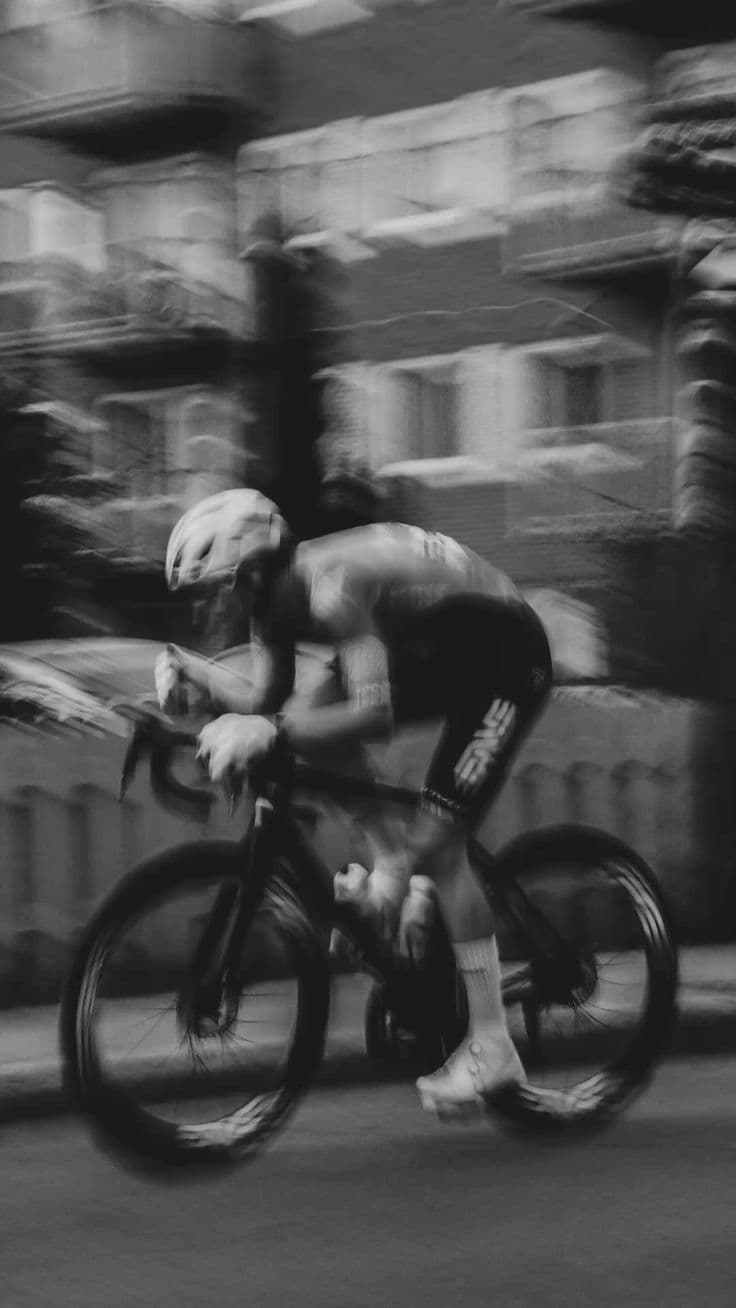The Pre-Run Nutrition Balance
Eat too much: Stomach cramps, nausea, GI distress
Eat too little: Low energy, bonking, poor performance
The goal: Provide enough fuel without causing digestive issues
The key factors:
- Timing: How long before your run
- Run duration: Under 60 min vs. over 90 min
- Run intensity: Easy vs. hard effort
- Time of day: Morning, afternoon, or evening
General Pre-Run Eating Rules
Timing Guidelines
3-4 hours before: Full meal (normal portion)
2-3 hours before: Small meal (400-600 calories)
1-2 hours before: Light snack (200-300 calories)
30-60 minutes before: Small snack (100-150 calories)
Less than 30 minutes: Only if well-tolerated, minimal food
The closer to your run, the smaller and simpler the food should be.
Macronutrient Focus
Carbohydrates: Primary fuel source
- Easy to digest
- Quickly available energy
- 60-80% of pre-run snack/meal
Moderate protein: Satiety without slowing digestion
- 10-20% of pre-run snack/meal
- Avoid large amounts close to running
Low fat: Takes longest to digest
- Small amounts okay 3+ hours before
- Avoid within 2 hours of running
Low fiber: Prevents GI issues
- Avoid high-fiber foods close to runs
- Exception: If your stomach tolerates it
Foods to Avoid Before Running
Within 2-3 hours:
- High-fat foods (fried foods, heavy cream, fatty meats)
- High-fiber foods (beans, cruciferous vegetables, bran)
- Spicy foods
- Large portions of dairy (if lactose sensitive)
- New or unfamiliar foods (save experimentation for non-run days)
- Sugar alcohols (sorbitol, xylitol—cause GI distress)
Morning Runs (5-7am)
Pre-Run Strategy
Challenge: Limited time between waking and running
Two approaches:
1. Fasted running (no food):
- Works for easy runs under 60 minutes
- Your body uses stored glycogen
- Not ideal for hard workouts or long runs
2. Small, quick-digesting snack (30-60 min before):
- Provides quick energy
- Minimal GI risk
- Better for workouts and long runs
Best Pre-Morning-Run Foods
30-60 minutes before (100-200 calories):
- ½ banana
- Small handful of pretzels
- 1 slice white toast with honey
- ½ bagel
- Sports drink (8-12 oz)
- 1-2 dates
- Applesauce pouch
- Handful of dry cereal
Choose: Simple carbs that digest quickly
Hydration: 8-12 oz water or sports drink
Sample Morning Routine
6:00am: Wake up 6:05am: Drink 8-12 oz water, eat ½ banana with honey 6:20-6:30am: Start run (25-30 min after eating)
Afternoon Runs (12-2pm)
Pre-Run Strategy
Advantage: More time to digest breakfast
Challenge: May need small snack if running 3+ hours after breakfast
If Running 2-3 Hours After Breakfast
Eat normal breakfast (7-9am):
- Oatmeal with banana and nut butter
- Whole grain toast with eggs
- Greek yogurt with granola and fruit
- Bagel with cream cheese and fruit
No additional snack needed for runs under 90 minutes
Hydration: 16-20 oz water, 2-4 hours before run
If Running 4+ Hours After Breakfast
Add small snack 60-90 min before run:
- Banana
- Granola bar
- Rice cakes with nut butter
- Handful of trail mix
Evening Runs (5-7pm)
Pre-Run Strategy
Advantage: Can have lunch and afternoon snack for fuel
Challenge: Avoiding heavy, late lunch that causes sluggishness
Sample Daily Eating Schedule
12:00pm: Lunch (moderate carbs, lean protein, vegetables)
- Chicken and rice bowl
- Turkey sandwich with fruit
- Pasta with marinara and lean protein
3:00pm: Afternoon snack (2-3 hours before run)
- Banana with peanut butter
- Granola bar and fruit
- Crackers with hummus
- Greek yogurt with honey
5:30-6:00pm: Run
No additional snack needed if afternoon snack was adequate
Hydration: 16-20 oz water between 3-5pm
By Run Duration and Intensity
Easy Runs Under 60 Minutes
Pre-run fuel: Optional (not strictly necessary)
If eating:
- Small snack 60-90 min before
- 100-150 calories
- Simple carbs
Examples: Banana, handful of pretzels, sports drink
Easy Runs 60-90 Minutes
Pre-run fuel: Recommended
2-3 hours before:
- 300-400 calories
- Mostly carbs, moderate protein
Examples:
- Oatmeal with banana
- Bagel with nut butter
- Toast with egg and fruit
Easy Runs Over 90 Minutes (Long Runs)
Pre-run fuel: Necessary
2-4 hours before:
- 400-600 calories
- High carb, moderate protein, low fat
Examples:
- Pancakes with syrup and banana
- Oatmeal with honey, banana, and toast
- Bagel with peanut butter and banana
- White rice with egg and fruit
Also bring: Fuel for during the run (gels, chews, sports drink)
Related: Marathon nutrition guide
Hard Workouts (Intervals, Tempo)
Pre-run fuel: Essential for performance
2-3 hours before:
- 300-500 calories
- High carb, low fiber, low fat
- Easy to digest
Examples:
- White rice with a little honey
- White toast with jam
- Bagel with banana
- Sports drink and pretzels
Avoid: Anything that might cause GI distress during hard effort
Pre-Run Meal and Snack Ideas
3-4 Hours Before (Full Meal)
Breakfast options:
- Oatmeal with banana, berries, and honey
- Whole grain toast with eggs and fruit
- Pancakes with maple syrup and banana
- Bagel with cream cheese, turkey, and fruit
Lunch options:
- Chicken and rice bowl with vegetables
- Turkey sandwich with fruit and pretzels
- Pasta with marinara and lean protein
- Grain bowl with quinoa, veggies, and chicken
1-2 Hours Before (Light Snack)
200-300 calories:
- Banana with 1 tbsp peanut butter
- Granola bar and piece of fruit
- Rice cakes with almond butter and honey
- Small smoothie (banana, berries, yogurt)
- Toast with jam
30-60 Minutes Before (Quick Energy)
100-150 calories:
- ½ banana
- Handful of pretzels
- 1-2 dates
- Applesauce pouch
- Sports drink (8 oz)
- Energy chews or gels (if accustomed to them)
Hydration Timing
Pre-run hydration is as important as food
2-4 hours before: 16-20 oz water
15-30 minutes before: 8-12 oz water or sports drink
Avoid: Chugging large amounts right before—causes sloshing and bathroom stops
Related: Hydration guide for runners
Testing Your Pre-Run Nutrition
Everyone's stomach is different—what works for one runner causes GI distress for another.
How to experiment:
- Try new foods on easy run days (not before hard workouts or races)
- Note what you ate, when, and how your stomach felt
- Adjust timing or food choice based on results
- Once you find what works, stick with it (especially for races)
Common discoveries:
- Some runners do great with fasted morning runs
- Others need fuel even for short runs
- Some can eat close to running, others need 2-3 hours
- Certain foods (dairy, high fiber, fat) cause issues for many
Race Day Nutrition
Race day is NOT the time to experiment.
Strategy:
- Eat the same pre-race meal you've practiced in training
- Same timing (2-4 hours before, depending on what you've tested)
- Familiar foods only
- Include carbs and hydration
Pre-race meal examples (3-4 hours before):
- 5K/10K: Bagel with banana, 16 oz water or sports drink
- Half marathon: Oatmeal with banana and honey, toast, 16-20 oz fluids
- Marathon: Pancakes or waffles with syrup, banana, 16-24 oz fluids
Related: Race day preparation checklist
Special Considerations
Running for Weight Loss
Don't skip pre-run fuel thinking it'll burn more fat
Why:
- Low energy = poor workout quality
- You'll eat more later (body compensates)
- Harder to stick with training
Better approach: Small pre-run snack (100-200 cal) + normal post-run recovery
Sensitive Stomach
If prone to GI issues:
- Increase timing (3+ hours between eating and running)
- Choose very simple carbs (white bread, banana, rice)
- Avoid dairy, fat, fiber before runs
- Consider liquid nutrition (smoothie, sports drink)
- Stay hydrated but don't overdrink
Low-Carb or Keto Runners
If following low-carb diet:
- You can run fasted more easily (fat-adapted)
- May still benefit from small pre-run carbs for hard efforts
- Longer adaptation period needed (6-8 weeks)
Note: Most runners perform better with carbs for high-intensity and long runs
Common Pre-Run Nutrition Mistakes
1. Eating Too Close to Running
Problem: Food not digested, causes cramps and nausea
Fix: Allow 1-3 hours depending on portion size
2. Trying New Foods Before Important Runs
Problem: Unknown GI tolerance = potential disaster
Fix: Only experiment on easy training days
3. Eating Too Much
Problem: Sluggishness, GI distress, discomfort
Fix: Small snack is enough for runs under 90 minutes
4. Skipping Pre-Run Fuel for Long/Hard Runs
Problem: Bonking, poor performance, miserable experience
Fix: Always fuel before runs over 90 min or hard workouts
5. High-Fiber or High-Fat Pre-Run Meals
Problem: Slow digestion = GI issues mid-run
Fix: Save these for post-run or rest days
How kovaa Helps with Pre-Run Nutrition
Personalized nutrition timing based on:
- Your workout schedule and intensity
- Your eating preferences and restrictions
- Run duration and timing
- Past nutrition experiences
kovaa provides:
- Pre-run meal suggestions based on workout type
- Timing reminders (when to eat before afternoon/evening runs)
- Hydration prompts
- Race day nutrition planning
Quick Pre-Run Nutrition Checklist
For runs under 60 minutes:
- Optional: Small snack 30-60 min before (100-150 cal)
- Drink 8-12 oz water
For runs 60-90 minutes:
- Light snack or meal 1-3 hours before (200-400 cal)
- Mostly carbs, low fiber/fat
- Drink 16-20 oz water 2-4 hours before
For runs over 90 minutes:
- Meal 2-4 hours before (400-600 cal)
- High carb, moderate protein, low fat/fiber
- Drink 16-24 oz water 2-4 hours before
- Bring fuel for during run
Final Thoughts
Pre-run nutrition is highly individual—experiment to find what works for you.
General principles:
- Easy runs under 60 min: Fuel optional
- Longer/harder runs: Fuel essential
- The closer to running, the smaller and simpler the food
- Avoid fat, fiber, and large portions close to runs
- Stay hydrated but don't overdrink
Most importantly: Practice your race day nutrition strategy during training, so there are no surprises on race day.
Ready for personalized pre-run nutrition guidance based on your training schedule? Download kovaa today.
Related: Marathon nutrition and fueling guide | Hydration for runners
Ready to Start Training?
Explore Adaptive Training Plans
From 5K to Ironman - personalized for your goals
Disclaimer: This content is for informational and educational purposes only. It is not intended as medical advice or a substitute for professional coaching. Consult with a qualified healthcare provider or certified coach before starting any new training program, especially if you have pre-existing health conditions or injuries.



